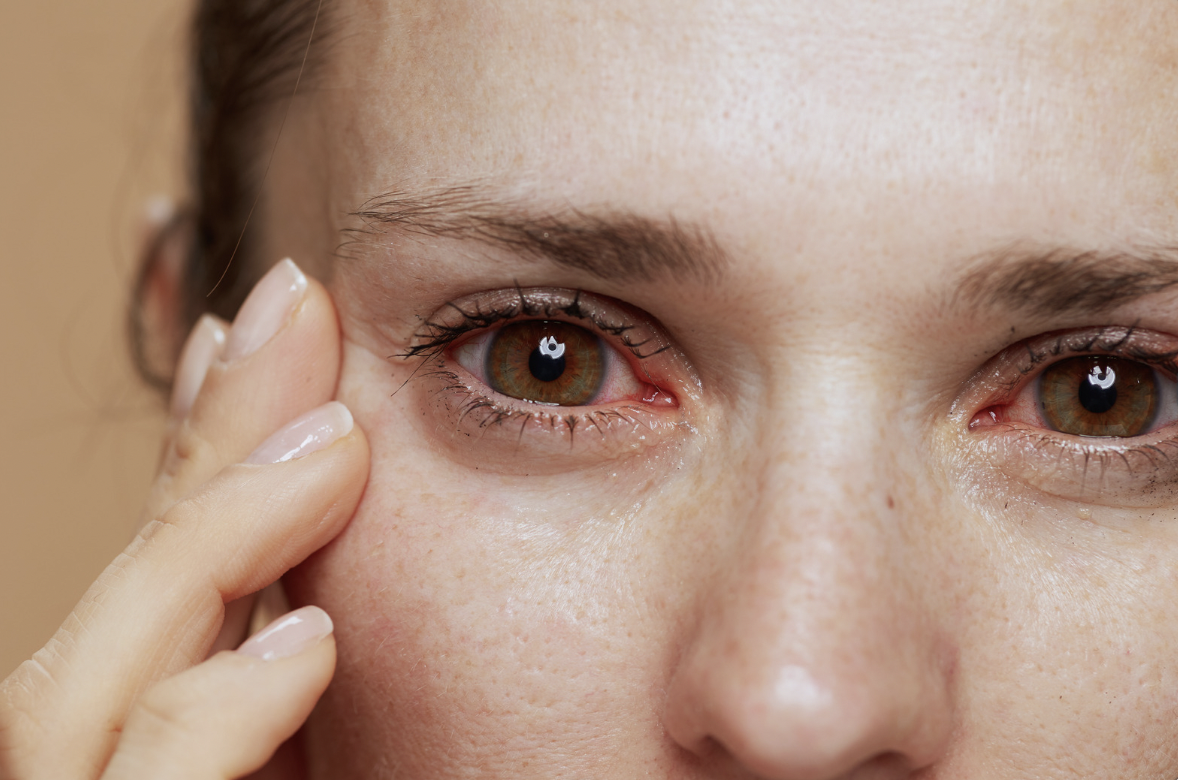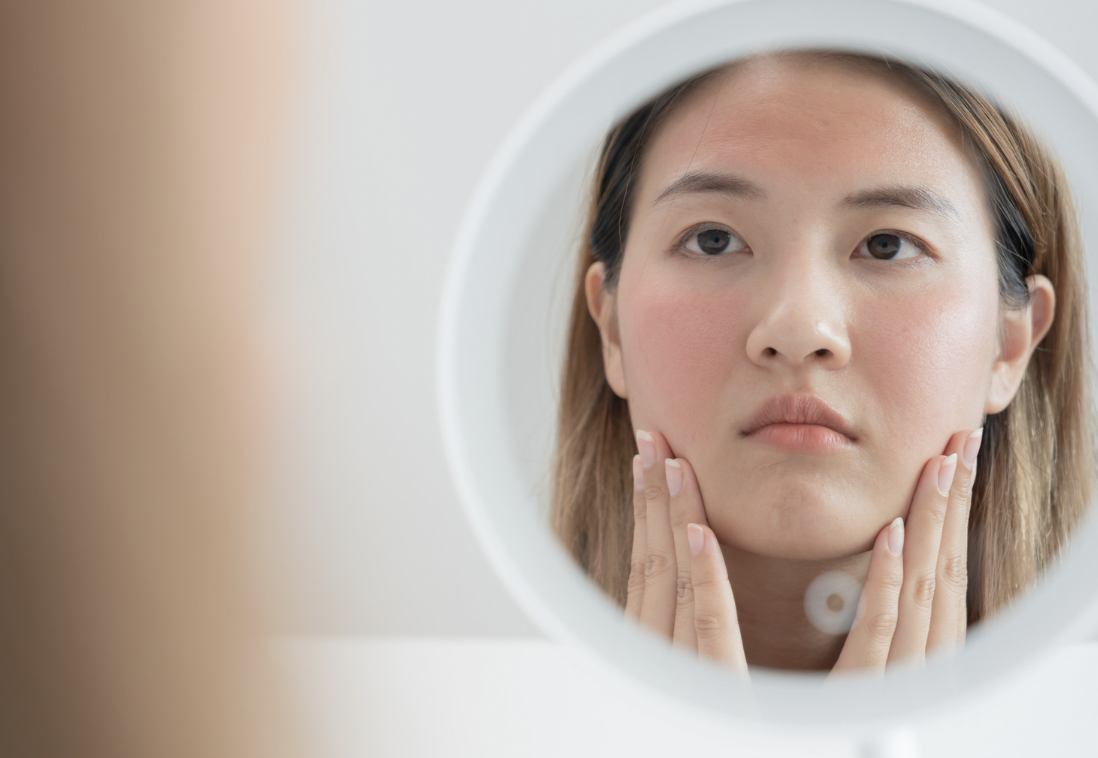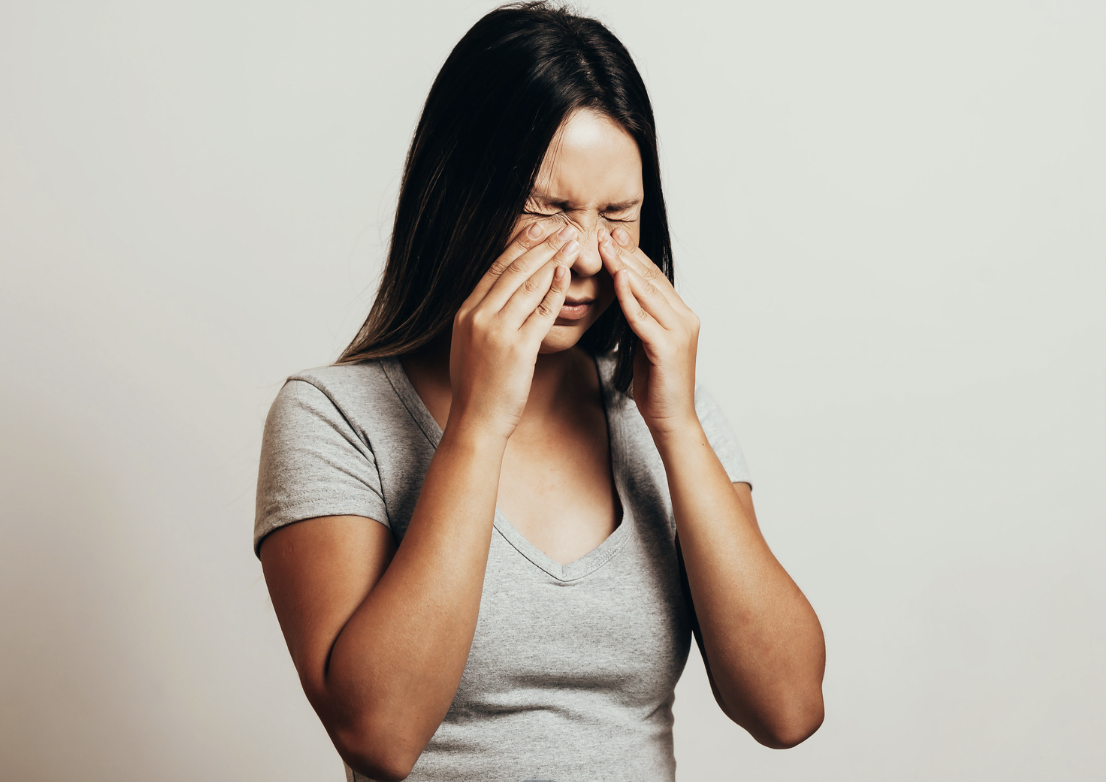Take This Quiz To Find Out If You’re Allergic To Your Dog
Are you looking for an “Am I Allergic To my Dog Quiz” because you concerned that you your dog may be the source of your sneezing? Maybe you’ve had a stuffy nose for weeks or are suddenly getting itchy after petting your pup. Is it all in your head, or could you really be allergic to your dog?
Around 20% of the world’s population is allergic to dogs and cats, and some more go undiagnosed. If that scares you or makes you think you’ll never be able to own a dog—stop and relax! There are lots of people with dog allergies with dogs. With a little help from modern medicine and an extra-thorough cleaning schedule, they even manage their symptoms.
This quiz will help you figure out if your symptoms could add up to a dog allergy, but this is not a good substitute for diagnosis. Always consult a doctor if you suspect you have an allergy to get the proper treatment for your symptoms.
Answer these questions and keep track of your score. Your total score at the end will tell you how likely it is that you’re allergic to your dog.

1. Do you have an itchy, stuffy, or runny nose?
Being sniffly, stuffy, or sneezy is one of the most common symptoms of dog allergies, and usually one of the first signs that you’re experiencing a reaction to your dog. This often comes with post nasal drip, itchy roof of the mouth, and persistent pressure in the sinuses.
If you notice that you get stuffy or sneezy at specific times of year, but otherwise tolerate being around your dog, you are likely experiencing seasonal allergies rather than dog allergies.
Choose one:
- No — 0 points
- Yes, just for a few days — 1 point
- Yes, for more than a month — 2 points
- Yes, always — 3 points
2. Do you have itchy or watery eyes?

When the eyes come in contact with an allergen, they release histamines and tears to soothe the reaction and try to flush the allergen. If you get itchy or watery eyes after petting or playing with your dog, you may be experiencing a dog allergy. Eye allergies may also be triggered by environmental factors, so if this is your only symptom, you may be allergic to something else.
Choose one:
- No — 0 points
- Yes, just for a few days — 1 point
- Yes, for more than a month — 2 points
- Yes, always — 3 points
3. Do you have any signs of rash or hives?

Rash around the face and neck is particularly common when experiencing dog allergies. This may look like redness, splotches, or discoloration, and will often be itchy or irritated. Hives may also appear on other parts of the body, especially after prolonged exposure to an allergen.
Choose one:
- No — 0 points
- Yes, it just appeared — 1 point
- Yes, but it comes and goes — 2 points
- Yes, for a week or more — 3 points
4. Do you feel short of breath or wheezy?

Respiratory issues as a result of exposure to allergen are usually an “overreaction” by the body following long-term irritation. Allergic respiratory reactions can be quite serious, and this symptom warrants a call or visit to your doctor.
Choose one:
- No — 0 points
- Yes, for a day or two — 1 point
- Yes, often — 2 points
- Yes, always — 3 points
5. Do your symptoms get worse when you go outside?

If your symptoms are worse outside than inside, you are likely experiencing a seasonal or environmental allergy as opposed to a pet allergy.
Choose one:
- Yes, always — 0 points
- Yes, sometimes — 1 point
- It’s hard to tell — 2 points
- No — 3 points
6. Do you have facial or sinus pain?

Facial and sinus pain are common amongst individuals with dog allergies, both in conjunction with and separate from runny nose and stuffiness.
Choose one:
- No — 0 points
- Yes, for a few days — 1 point
- Yes, for at least a week — 2 points
- Yes, regularly — 3 points
7. Do you have trouble sleeping?

Trouble sleeping due to allergies is typically a culmination of symptoms and side-effects. Trouble breathing, postnasal drip, and uncomfortable rashes can make sleep difficult, especially if your dog sleeps in your bedroom.
Choose one:
- No — 0 points
- Yes, sometimes — 1 point
- Yes, regularly — 2 points
- Yes, all the time — 3 points
Results
Tally your results! Add up the points from each question. Once you have your total, consult this key:
0–7 points: Likely not allergic to your dog
8–11 points: Low likelihood of dog allergy, but still possible
12–16 points: Possibly allergic to your dog
17–21 points: Very likely allergic to your dog
Dog Allergy FAQ
You aren’t doomed to life without a dog if you have a dog allergy, but you might need to make a few changes. Here are some common questions about what to do after getting a dog allergy diagnosis.
Do I need to rehome my dog if I’m allergic?
If someone in your household has a severe allergy that causes life disrupting symptoms and cannot sustainably be treated, you may need to rehome your dog. However, most dog allergies are mild enough that they can be managed.
Can dog allergies be cured?
There are long-term treatment options that can reduce the severity of dog allergies, and all-but eliminate allergic reactions from your life. Currently, allergy shots and immunotherapy are the most effective long-term treatment options for allergies.
Will getting a hypoallergenic dog help my allergies?
Maybe. There is no such thing as a 100% hypoallergenic dog, but there are dogs that have anecdotally been shown to trigger fewer allergic reactions. If you are looking for a low-shedding dog because you are allergic to dog dander, we recommend the Poodle.
What are the common signs and symptoms of a dog allergy?
Common signs and symptoms of a dog allergy include sneezing, coughing, wheezing, itchy and watery eyes, runny nose, skin rashes or hives, and difficulty breathing.
How can I determine if I’m allergic to my dog?
The best way to determine if you’re allergic to your dog is to consult with an allergist. They can perform allergy tests, such as skin prick tests or blood tests, to identify specific allergens causing your symptoms.
Can I develop an allergy to my dog even if I’ve had them for years without any issues?
Yes, it is possible to develop an allergy to your dog even after having them for a long time. Allergies can develop or worsen over time due to various factors, including changes in your immune system.
Are certain dog breeds more likely to cause allergies than others?
While no dog breed is completely hypoallergenic, some breeds are known to produce fewer allergens or trigger fewer allergic reactions. Breeds such as poodles, bichon frises, and Portuguese water dogs are often considered more allergy-friendly.
Can I still have a dog if I’m allergic to them?
It depends on the severity of your allergy and your ability to manage symptoms. Some people with mild allergies can still enjoy the companionship of a dog by taking measures such as regular grooming, keeping the house clean, and using allergy medications.
Are there any ways to reduce dog allergens in my home?
Yes, several measures can help reduce dog allergens in your home. These include frequent vacuuming and dusting, washing your dog’s bedding regularly, using air purifiers with HEPA filters, and keeping your dog out of your bedroom.
Can allergy shots (immunotherapy) help with dog allergies?
Allergy shots, or immunotherapy, can be an effective treatment for dog allergies. Over time, these shots can help desensitize your immune system to dog allergens, reducing the severity of your allergic reactions.
Are there any non-medical remedies for managing dog allergies?
Yes, there are some non-medical remedies that can help manage dog allergies. These include bathing your dog regularly, using allergen-neutralizing sprays on furniture and carpets, and creating “allergy-free zones” in your home.
Can dog allergies be mistaken for other respiratory conditions?
Yes, the symptoms of dog allergies can sometimes be mistaken for other respiratory conditions, such as a common cold or asthma. Consulting with a healthcare professional or allergist can help determine the cause of your symptoms.
Can exposure to dogs help build immunity and reduce allergies over time?
It’s a common belief that exposure to dogs from an early age can help build immunity and reduce allergies later in life. However, the relationship between early dog exposure and allergy development is complex and varies from person to person.
Where can I find an “Am I allergic to my dog quiz?”
Right here! Just scroll up and answer the questions!
What is an “Am I allergic to my dog quiz” and how can it help me determine if I’m allergic to my dog?
An “Am I allergic to my dog quiz” is a set of questions designed to assess your symptoms and reactions to dogs. By taking this quiz, you can evaluate the likelihood of being allergic to your dog based on your responses.
Why am I only allergic to my cat and not my dog?
Allergies are unique to individuals, and it is possible to be allergic to one type of animal while not being allergic to another. The proteins found in cat dander may trigger an allergic reaction in some people, while dog allergens may not cause the same response.
How can I test for a cat allergy at home?
It is challenging to test for allergies at home accurately. It’s best to consult with a medical professional or allergist for a proper diagnosis. They can conduct tests, such as skin prick tests or blood tests, to determine if you have a cat allergy.
Why am allergic to my dog all of a sudden?
Allergies can sometimes develop or manifest suddenly, even if you haven’t experienced symptoms before. There are a few reasons why you might become allergic to your dog all of a sudden:
Sensitization: You may have been exposed to dog allergens for a long time without showing any symptoms. Over time, your immune system can become sensitized to these allergens, leading to an allergic reaction when exposed to them.
Increased exposure: If you’ve recently increased your exposure to your dog or spent more time in close proximity to them, it can trigger an allergic reaction. The increased exposure can overload your immune system, leading to the sudden onset of allergy symptoms.
Changes in your immune system: Your immune system can undergo changes due to various factors, such as stress, illness, hormonal fluctuations, or other environmental factors. These changes can make you more susceptible to developing allergies or trigger existing allergies.
Changes in your dog’s dander: Dogs can produce different amounts or types of allergens depending on factors like age, diet, health, or shedding patterns. If your dog’s dander composition changes, it can potentially trigger an allergic response in you, even if you haven’t been allergic to them before.
Related Articles:
- Celebrity Dog Quiz. How Many Can You Get Right?
- How Much Do You Know About Dogs? Take Our Quiz!
- Should I Foster A Dog? Take the Quiz
- How Often Should You Wash Your Dog? Take Our Quiz
- How Many of These Designer Dog Crossbreeds Can You Identify? (Take Our Quiz)




